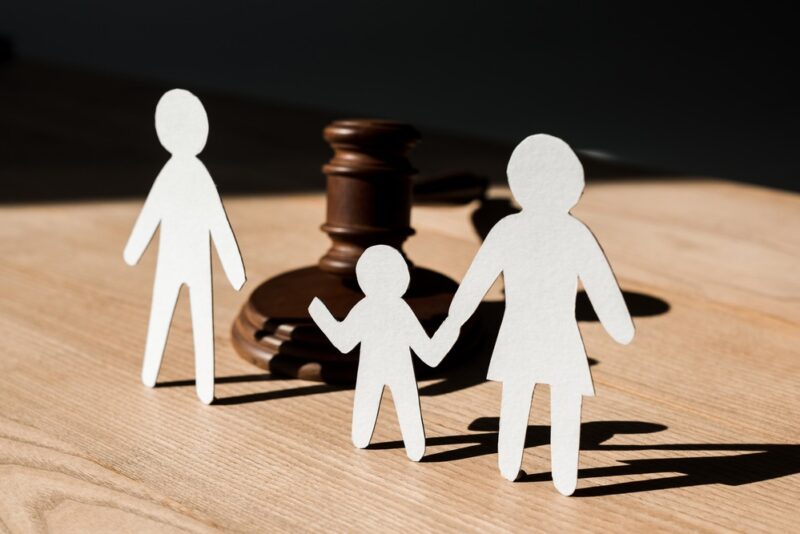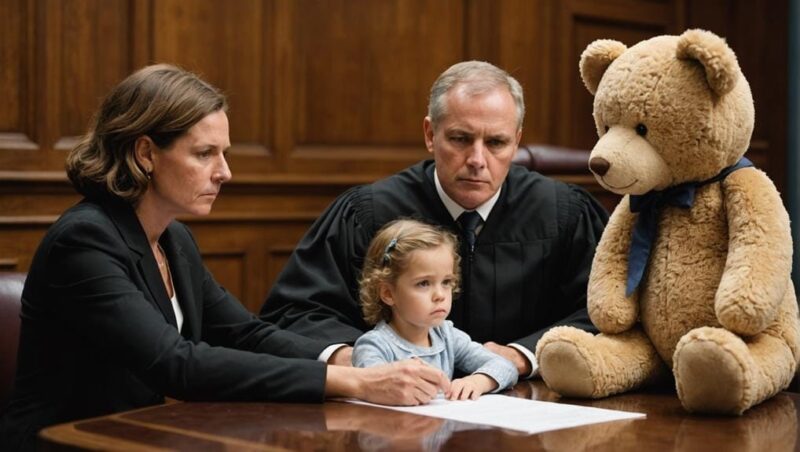When co-parenting breaks down, the fallout can be brutal. Arguments turn toxic. Communication disappears.
Children end up caught between hostility, fear, and confusion. In high-conflict family environments, emotional damage escalates fast—and physical risk often follows.
If you’re dealing with threats, instability, or harmful behavior from the other parent, the time for waiting is over.
The legal system offers strong tools to keep your children safe. But you must know how to use them.
This article is not about taking sides. It’s about taking responsibility. Courts don’t protect assumptions. They respond to action, evidence, and preparation.
Whether you’re facing manipulation, neglect, or outright danger, legal protection is your best defense—and your child’s safety net.
Every step you take should focus on clarity, structure, and calm. Emotional outbursts won’t help you in court. Documentation, legal support, and clear strategy will.
Below, we’ll walk through every key legal safeguard available for protecting children in high-conflict families.
Key Highlights
- Legal action can create immediate safety for children in hostile homes.
- Evidence carries more weight in court than emotion or verbal claims.
- Family solicitors are essential for high-stakes custody protection.
- Courts use strict criteria to determine child safety and parental rights.
- Emergency court hearings offer fast action in urgent situations.
- Parental alienation is psychological harm courts no longer ignore.
First Step: Stop Arguing, Start Documenting

In high-conflict families, every conversation can become a trap. Courts don’t reward dramatics—they respond to facts. Instead of arguing, keep records.
Write down every threatening message, note every missed visitation, and save messages where your child’s well-being is ignored. Your credibility builds with detail and timelines.
If it’s not written down, it didn’t happen. Judges need specifics. Not rants. Not generalizations. Solid cases begin with silent preparation.
What Judges Actually Look At
Forget assumptions. Judges don’t default to one parent unless risk exists. They analyze several factors before making any decision about custody or contact.
The term best interest of the child means:
- Long-term emotional and physical safety
- School stability and home environment
- History of abuse, addiction, or neglect
- A parent’s ability to separate personal anger from parenting
Children need peace—not a winner between parents.
Protective Orders: How They Work
In some cases, legal protection starts with drawing a hard line. Protective orders block harassment, stop dangerous contact, and give the safe parent room to breathe.
This isn’t about revenge. It’s about structure. These orders are time-bound, court-backed, and fully enforceable. If one parent breaks the order, they face legal consequences—not just warnings.
Protective orders protect routines. They give children consistency. Even when everything else feels out of control.
Why Legal Experts Matter in Family Conflict

If your case involves manipulation, risk, or complex behavior patterns, general advice won’t cut it. That’s where experienced family solicitors come in.
They don’t treat you like a file number. They guide you through:
- Emergency child protection procedures
- Custody modification or enforcement
- Parental alienation claims
- Fast legal strategy under pressure
Kabir Family Law assigns specialists who know what to do—because they’ve handled chaos like yours before.
Supervised Contact: Controlled but Critical
Some parents remain part of a child’s life—but only under strict terms. Courts may order supervised contact when safety is uncertain. That doesn’t mean the parent is erased. It means visits happen under observation.
These sessions are short, monitored, and often occur at neutral venues. They’re legally structured. Nothing casual. And they serve one goal: allow the relationship to survive without risk to the child.
It’s a bridge, not a solution. But it matters.
Guardians and Advocates for Children

In some disputes, neither parent is viewed as fully credible. When that happens, courts appoint a neutral guardian—someone whose only concern is the child’s welfare.
This individual speaks directly to the judge. Their report may carry more weight than either parent’s testimony. They often notice patterns that emotionally involved parents miss.
Their role is not emotional. It’s observational. They help judges cut through the noise.
Proof Always Wins Over Panic
No matter how tense things get, your strongest weapon is proof. Courts are flooded with hearsay. What cuts through that noise?
- Police or medical records tied to specific incidents
- Screenshots of abusive or manipulative messages
- Notes from teachers, doctors, or therapists
- Chronological timelines of conflict incidents
You don’t need to be perfect. You need to be prepared. That starts with smart documentation, not public confrontation.
Psychological Harm Matters Too
Emotional damage isn’t invisible anymore. Courts now treat psychological manipulation—like parental alienation—as real and harmful.
When one parent trains the child to fear, reject, or distrust the other, it leaves scars. Judges look for patterns of controlling behavior, fear-based speech in children, or sudden withdrawal without clear cause.
When proven, courts act. Custody shifts. Therapy begins. Trust can be rebuilt—but only if the legal system intervenes early.
Financial Stability is Legal Protection Too

Children in volatile homes often face financial gaps. One parent might withhold money to punish the other. Some avoid responsibilities altogether.
Family courts can:
- Enforce overdue child support
- Uncover hidden income
- Demand emergency contributions during legal disputes
Money matters. Not for luxury—but for survival. Legal protection includes stable housing, food, medical care, and school access. Don’t ignore this angle.
Emergency Action: When Waiting Is Dangerous
If your child’s safety is in immediate danger, do not wait for weeks. Courts allow emergency hearings that trigger rapid protective action.
But you must come prepared. Judges act quickly only when the evidence is clear and immediate. If you suspect violence, abduction, or serious harm, don’t stall. Your solicitor can fast-track the right filing.
It’s not about fear. It’s about speed and structure when time matters most.
Keep Your Focus Where It Belongs

You’re not in a contest. You’re in a legal process. Winning in court doesn’t mean destroying your ex. It means creating calm for your child.
Avoid:
- Manipulating your child’s opinion
- Using social media as an outlet
- Violating current court orders out of frustration
Stay focused. Stay guided. Your child doesn’t need a hero. They need an adult who chooses structure over shouting.
Final Words
When family tension escalates, children become the silent victims. Your job is not to prove who’s right. It’s to provide who’s safest. That takes planning, legal backing, and a cool head.
Start with evidence. Seek support from legal experts. Act quickly when risk appears.
Children don’t need perfection. They need protection—starting now.


